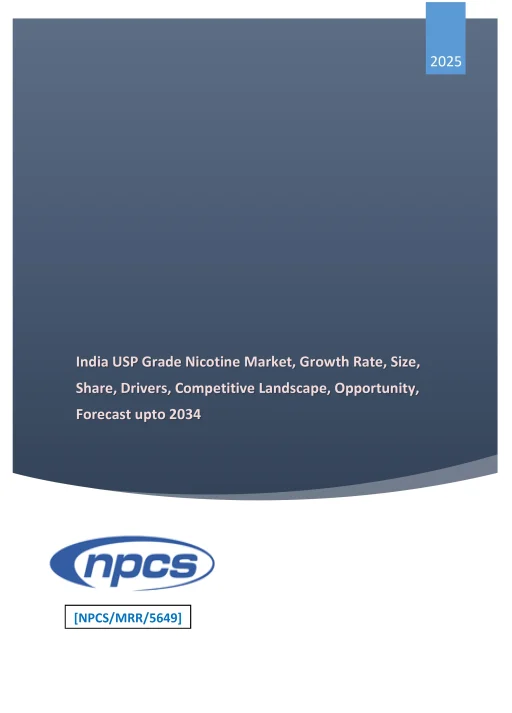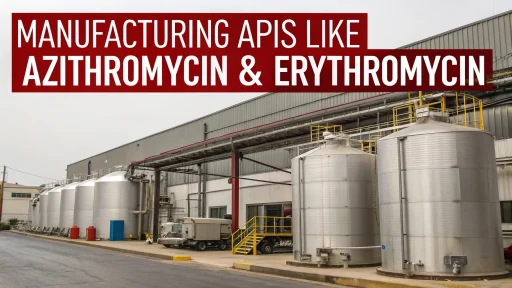There is a tremendous boom in the Indian pharmaceutical industry due to global self-sufficiency demands in APIs (Active Pharmaceutical Ingredients). One of the key players contributing to this growth is Vitamin A Palmitate, which has diverse applications. There are new ventures for pharma-oriented entrepreneurs with API unit and intermediate manufacturing, thanks to government policies, increasing demand, and available incentives.
Why Should We Focus On Vitamin A Palmitate And Api Unit Intermediates?
As a fat soluble vitamin, Vitamin A Palmitate finds application within pharmaceuticals, food fortification, and even cosmetics. It plays an important role in metabolism of lipids as well as immunology making it crucial. Because most nations are looking to cut dependencies on Chinese nationals,manufacturing this API Unit along its intermediates creates a timely business opportunity.
API Unit intermediates also seem increasingly popular. With India’s restrictions on importing APIs we need more infrastructure focused on producing these intermediates.
Market Trends And The Predicted Value Of Demand
Per Chemical Weekly’s June 2025 edition India’s pharmaceutical market is expected grow at CAGR of 11% through till 2030. By 2028 the global vitamin A market is projected to reach palmtate consumable grade value of $1.2 billion over global demand.
The Indian government’s Production Linked Incentive (PLI) for APIs and their intermediates with investment on Vitamin A Palmitate has received more than INR 15,000 crore. Entrepreneurs pursuing these investments stand to gain from subsidies, lower compliance burden, and significant export opportunities.
Related: Start Azithromycin API Manufacturing in India: Cost & Profit Guide
Key Growth Drivers
- Government Incentives: Production links incentives (PLI), tax breaks, and subsidized loans
- Increased Health Awareness: Demand surge for fortified food and pharma products
- Import Substitution: New domestic manufacturing reduces dependency on China
- Export Opportunities: Developed markets have high demand
Basic Manufacturing Process of Vitamin A Palmitate
Manufacturing of Vitamin A Palmitate involves the following steps:
- Esterification: Retinol is reacted with palmitic acid in presence of a catalyst.
- Purification: Product purification through crystallization or distillation.
- Stabilization: Adding antioxidants for improved stability.
- Formulation: Converting to grade oils, powders, or capsules.
Prerequisites for Establishing a Plant
- Land and Infrastructure: An industrial plot with utilities is needed.
- Machinery: This includes reactors, distillation columns, centrifuges, and dryers.
- Raw Materials: Requires retinol, palmitic acid, solvents, and stabilizers.
- Human Resources: Chemists and technicians specialized in quality control are needed.
- Compliance: GMP certification along with environmental clearances and regulatory approvals.
Related: 20 Best Manufacturing Business Ideas in Active Pharmaceutical Ingredient (API) Products Industry
Financial Overview
The estimated initial setup cost for a medium scale unit manufacturing Vitamin A Palmitate and its intermediates lies between 25 to 40 crore INR. Typically break-even is achieved in 3 to 5 years, with an average ROI of 18-22%.
Strategic Advice for Startups
- Focus on Quality: Adhere to GMP standards for global market access.
- Leverage Incentives: Ensure timely applications for PLI as well as state subsidies.
- Build Partnerships: Collaborate with pharma majors for B2B contracts.
- Invest in R&D: Create advanced versions of intermediates that will increase margins.
- Sustainable ESG compliance can be gained through green practices.
Overall Summary
There is a remarkable opportunity for entrepreneurs looking to begin pharmaceutical manufacturing due to the current API Unit. The growing appetite paired with strong policy backing and high profits makes Vitamin A Palmitate and its intermediates very attractive options.
Niir Project Consultancy Services (NPCS) prepares Detailed Techno Economic Feasibility Reports including Market Surveys. NPCS provides a complete report on the detailed processes that include the entire manufacturing process from acquiring raw materials to the plant layout as well as financial matters. NPCS aids in evaluating new entrepreneurial ventures or assessing new industries and business setup.







